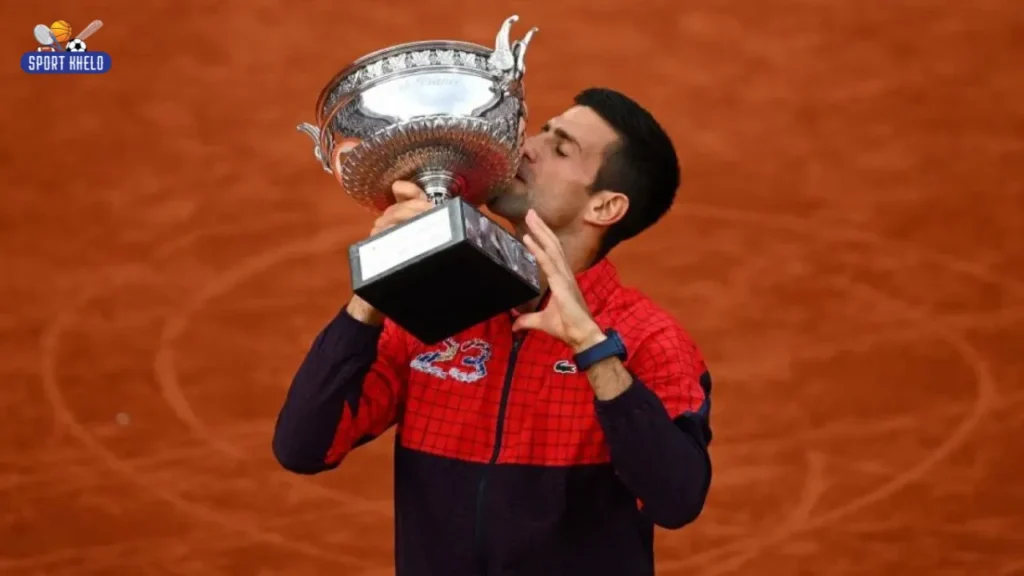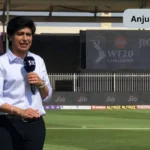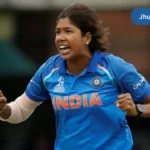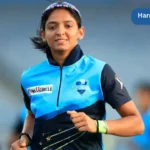Djokovic wins third Roland Garros title in 2023
In a spectacular display of skill and determination, Novak Djokovic emerged victorious at the 2023 French Open held at the iconic Roland-Garros stadium in Paris. His commanding straight-sets victory over last year’s runner-up, Casper Ruud, not only secured him the championship but also etched his name among the greats of the game. This article delves into Djokovic’s remarkable achievement, shedding light on the rich history of the French Open and its significance in the world of tennis.

Novak Djokovic’s Triumph
Novak Djokovic’s triumph at the 2023 French Open marked a historic moment in his illustrious career. With this win, he joined an elite group of tennis legends who have claimed the Roland-Garros title at least three times. This exclusive club includes Gustavo Kuerten, Ivan Lendl, Mats Wilander, Bjorn Borg, and the undisputed “King of Clay,” Rafael Nadal, who boasts a staggering 14 French Open victories. Djokovic’s third title in the French capital solidifies his status as one of the greatest players of his generation. Also Read : Now I know I can win big titles says French Open finalist Muchova
The French Open
A Clay Court Tradition: Since its inception in 1968, the French Open has been a prominent fixture in the tennis calendar. As the first major tournament to embrace the Open Era, it revolutionized the sport by allowing both amateurs and professionals to compete on equal footing. Over the years, the red clay courts of Roland-Garros have witnessed remarkable performances, iconic rivalries, and unforgettable moments that have left an indelible mark on the history of tennis.
The Prestigious Musketeers’ Cup
At the heart of the French Open lies the coveted Musketeers’ Cup, a symbol of excellence and triumph in the world of tennis. Since its inception, 27 different men have hoisted this prestigious trophy, signifying their mastery of the clay courts. Novak Djokovic’s name will now forever be etched alongside the greats who have left an enduring legacy at Roland-Garros.
complete list of men’s singles winners at French Open
| YEAR | WINNER | RUNNER-UP | SCORE |
| 2023 | Novak Djokovic (Serbia) | Casper Ruud (Norway) | 7–6(1), 6–3, 7–5 |
| 2022 | Rafael Nadal (Spain) | Casper Ruud (Norway) | 6–3, 6–3, 6–0 |
| 2021 | Novak Djokovic (Serbia) | Stefanos Tsitsipas (Greece) | 6–7(6), 2–6, 6–3, 6–2, 6–4 |
| 2020 | Rafael Nadal (Spain) | Novak Djokovic (Serbia) | 6–0, 6–2, 7–5 |
| 2019 | Rafael Nadal (Spain) | Dominic Thiem (Austria) | 6–3, 5–7, 6–1, 6–1 |
| 2018 | Rafael Nadal (Spain) | Dominic Thiem (Austria) | 6–4, 6–3, 6–2 |
| 2017 | Rafael Nadal (Spain) | Stan Wawrinka (Switzerland) | 6–2, 6–3, 6–1 |
| 2016 | Novak Djokovic (Serbia) | Andy Murray (Great Britain) | 3–6, 6–1, 6–2, 6–4 |
| 2015 | Stan Wawrinka (Switzerland) | Novak Djokovic (Serbia) | 4–6, 6–4, 6–3, 6–4 |
| 2014 | Rafael Nadal (Spain) | Novak Djokovic (Serbia) | 3–6, 7–5, 6–2, 6–4 |
| 2013 | Rafael Nadal (Spain) | David Ferrer (Spain) | 6–3, 6–2, 6–3 |
| 2012 | Rafael Nadal (Spain) | Novak Djokovic (Serbia) | 6–4, 6–3, 2–6, 7–5 |
| 2011 | Rafael Nadal (Spain) | Roger Federer (Switzerland) | 7–5, 7–6(3), 5–7, 6–1 |
| 2010 | Rafael Nadal (Spain) | Robin Soderling (Sweden) | 6–4, 6–2, 6–4 |
| 2009 | Roger Federer (Switzerland) | Robin Soderling (Sweden) | 6–1, 7–6(1), 6–4 |
| 2008 | Rafael Nadal (Spain) | Roger Federer (Switzerland) | 6–1, 6–3, 6–0 |
| 2007 | Rafael Nadal (Spain) | Roger Federer (Switzerland) | 6–3, 4–6, 6–3, 6–4 |
| 2006 | Rafael Nadal (Spain) | Roger Federer (Switzerland) | 1–6, 6–1, 6–4, 7–6(4) |
| 2005 | Rafael Nadal (Spain) | Mariano Puerta (Argentina) | 6–7(6), 6–3, 6–1, 7–5 |
| 2004 | Gaston Gaudio (Argentina) | Guillermo Coria (Argentina) | 0–6, 3–6, 6–4, 6–1, 8–6 |
| 2003 | Juan Carlos Ferrero (Spain) | Martin Verkerk (Netherlands) | 6–1, 6–3, 6–2 |
| 2002 | Albert Costa (Spain) | Juan Carlos Ferrero (Spain) | 6–1, 6–0, 4–6, 6–3 |
| 2001 | Gustavo Kuerten (Brazil) | Alex Corretja (Spain) | 6–7(3), 7–5, 6–2, 6–0 |
| 2000 | Gustavo Kuerten (Brazil) | Magnus Norman (Sweden) | 6–2, 6–3, 2–6, 7–6(6) |
| 1999 | Andre Agassi (USA) | Andrei Medvedev (Ukraine) | 1–6, 2–6, 6–4, 6–3, 6–4 |
| 1998 | Carlos Moya (Spain) | Alex Corretja (Spain) | 6–3, 7–5, 6–3 |
| 1997 | Gustavo Kuerten (Brazil) | Sergi Bruguera (Spain) | 6–3, 6–4, 6–2 |
| 1996 | Yevgeny Kafelnikov (Russia) | Michael Stich (Germany) | 7–6(4), 7–5, 7–6(4) |
| 1995 | Thomas Muster (Austria) | Michael Chang (USA) | 7–5, 6–2, 6–4 |
| 1994 | Sergi Bruguera (Spain) | Alberto Berasategui (Spain) | 6–3, 7–5, 2–6, 6–1 |
| 1993 | Sergi Bruguera (Spain) | Jim Courier (USA) | 6–4, 2–6, 6–2, 3–6, 6–3 |
| 1992 | Jim Courier (USA) | Petr Korda (Czechoslovakia) | 7–5, 6–2, 6–1 |
| 1991 | Jim Courier (USA) | Andre Agassi (USA) | 3–6, 6–4, 2–6, 6–1, 6–4 |
| 1990 | Andres Gomez (Ecuador) | Andre Agassi (USA) | 6–3, 2–6, 6–4, 6–4 |
| 1989 | Michael Chang (USA) | Stefan Edberg (Sweden) | 6–1, 3–6, 4–6, 6–4, 6–2 |
| 1988 | Mats Wilander (Sweden) | Henri Leconte (France) | 7–5, 6–2, 6–1 |
| 1987 | Ivan Lendl (Czechoslovakia) | Mats Wilander (Sweden) | 7–5, 6–2, 3–6, 7–6(3) |
| 1986 | Ivan Lendl (Czechoslovakia) | Mikael Pernfors (Sweden) | 6–3, 6–2, 6–4 |
| 1985 | Mats Wilander (Sweden) | Ivan Lendl (Czechoslovakia) | 3–6, 6–4, 6–2, 6–2 |
| 1984 | Ivan Lendl (Czechoslovakia) | John McEnroe (USA) | 3–6, 2–6, 6–4, 7–5, 7–5 |
| 1983 | Yannick Noah (France) | Mats Wilander (Sweden) | 6–2, 7–5, 7–6(3) |
| 1982 | Mats Wilander (Sweden) | Guillermo Vilas (Argentina) | 1–6, 7–6(6), 6–0, 6–4 |
| 1981 | Bjorn Borg (Sweden) | Ivan Lendl (Czechoslovakia) | 6–1, 4–6, 6–2, 3–6, 6–1 |
| 1980 | Bjorn Borg (Sweden) | Vitas Gerulaitis (USA) | 6–4, 6–1, 6–2 |
| 1979 | Bjorn Borg (Sweden) | Victor Pecci (Paraguay) | 6–3, 6–1, 6–7(6), 6–4 |
| 1978 | Bjorn Borg (Sweden) | Guillermo Vilas (Argentina) | 6–1, 6–1, 6–3 |
| 1977 | Guillermo Vilas (Argentina) | Brian Gottfried (USA) | 6–0, 6–3, 6–0 |
| 1976 | Adriano Panatta (Italy) | Harold Solomon (USA) | 6–1, 6–4, 4–6, 7–6(3) |
| 1975 | Bjorn Borg (Sweden) | Guillermo Vilas (Argentina) | 6–2, 6–3, 6–4 |
| 1974 | Bjorn Borg (Sweden) | Manuel Orantes (Spain) | 2–6, 6–7(4), 6–0, 6–1, 6–1 |
| 1973 | Ilie Nastase (Romania) | Nikola Pilic (Yugoslavia) | 6–3, 6–3, 6–0 |
| 1972 | Andres Gimeno (Spain) | Patrick Proisy (France) | 4–6, 6–3, 6–1, 6–1 |
| 1971 | Jan Kodes (Czech Republic) | Ilie Nastase (Romania) | 8–6, 6–2, 2–6, 7–5 |
| 1970 | Jan Kodes (Czech Republic) | Zeljko Franulovic (Yugoslavia) | 6–2, 6–4, 6–0 |
| 1969 | Rod Laver (Australia) | Ken Rosewall (Australia) | 6–4, 6–3, 6–4 |
| 1968 | Ken Rosewall (Australia) | Rod Laver (Australia) | 6–3, 6–1, 2–6, 6–2 |




